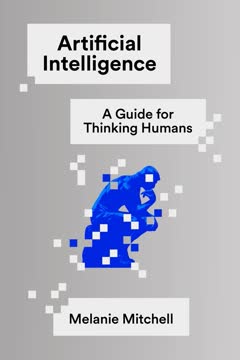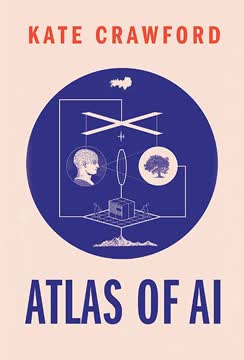つの重要なポイント
1. AIは人間の知識、認識、意思決定を再構築する
AIは徐々に、そして目立たない形で現実を整理し、形作る存在となり、事実上、国家および世界の舞台でのアクターとなっている。
新しい形の知性としてのAI。 人工知能(AI)は、人間の推論を補完し、時にはそれを超える革命的な知性の形を表している。従来の技術とは異なり、AIは学習し、進化し、複雑な問題に対する新しい解決策を生み出すことができる。この能力により、AIは膨大なデータを処理し、パターンを識別し、人間の能力を超えた規模で予測を行うことができる。
知識取得の変革。 AIは情報の取得と処理方法を根本的に変えている:
- ソーシャルメディアや検索エンジンでのパーソナライズされたコンテンツキュレーション
- 科学的発見におけるAI駆動の研究ツール
- 自動翻訳によるコミュニケーションの壁の打破
- 即時の回答と推奨を提供するAIアシスタント
意思決定の強化。 AIはますます重要な意思決定プロセスに関与している:
- 医療:病気の診断と治療の推奨
- 金融:信用評価と投資戦略
- 交通:自動運転車と交通管理
- ガバナンス:政策分析と資源配分
2. 機械学習は特定の分野でAIが人間の能力を超えることを可能にする
AlphaZeroの勝利は決定的だった:28勝、72引き分け、0敗。
機械学習の突破口。 特にディープラーニングとニューラルネットワークを用いた機械学習は、AIを従来のプログラミングの限界を超えるものにした。このアプローチにより、AIはデータと経験から学習し、事前にプログラムされたルールに従うのではなく、試行錯誤を通じて学ぶことができる。
機械学習の主要な進展:
- 教師あり学習:分類と予測タスクのためのラベル付きデータでのトレーニング
- 教師なし学習:ラベルなしデータのパターン発見
- 強化学習:シミュレーション環境での試行錯誤を通じた学習
AIが優れている分野:
- ゲームプレイ:チェス(AlphaZero)、囲碁(AlphaGo)
- 科学的発見:薬物開発(ハリシン抗生物質)
- 画像および音声認識:特定のタスクで人間を上回る
- 言語処理:高度な翻訳とテキスト生成(GPT-3)
これらの成果は、AIが科学研究から創造的な取り組みに至るまで、さまざまな分野で新しい洞察と解決策を提供し、人間の専門家が見逃す可能性のあるものを提供する潜在能力を示している。
3. AI駆動のネットワークプラットフォームがグローバルなコミュニケーションと商取引を変革する
ネットワークプラットフォームは、個々の国だけでなく、技術の自然な国境を越えた性質を考慮すると、政府間および広範な地域間の関係に対しても新たな文化的および地政学的な難題を提起している。
グローバルデジタルエコシステムの台頭。 ソーシャルメディア、eコマースサイト、ライドシェアアプリなどのAI対応ネットワークプラットフォームは、国境を越えた広大で相互接続されたデジタルエコシステムを作り出している。これらのプラットフォームは、ユーザー体験をパーソナライズし、運営を最適化し、前例のない規模でのグローバルな相互作用を促進するためにAIを活用している。
AI駆動のネットワークプラットフォームの主な特徴:
- ポジティブなネットワーク効果:ユーザー数が増えるほど価値が増す
- データ駆動の意思決定:AIがユーザー行動を分析してサービスを改善
- 国境を越えたリーチ:従来の地理的制限を超えて運営
地政学的影響。 これらのプラットフォームの台頭は、地政学的に重要な影響をもたらしている:
- データ主権の懸念:誰がユーザーデータを管理し、アクセスするのか?
- 規制の課題:イノベーションと国家安全保障およびプライバシーのバランス
- 経済力のシフト:国家に匹敵する影響力を持つテックジャイアント
- 文化の均質化対断片化:プラットフォームがグローバルな言説を形成
これらのプラットフォームが進化し続ける中で、国際関係、経済政策、文化交流をますます形作ることになり、新しいグローバルガバナンスと協力の枠組みが必要となる。
4. AIの台頭は伝統的な安全保障と国際秩序の概念に挑戦する
AI時代は、現代の戦略の謎を人間の意図を超えて、あるいは完全な人間の理解を超えてさらに複雑にするリスクがある。
軍事能力の再定義。 AIは軍事戦略と能力を革命的に変え、抑止、エスカレーション、紛争解決の伝統的な概念に挑戦する新しい次元の戦争を導入している。
AIが軍事作戦に与える影響:
- 自律兵器システム
- 強化された情報収集と分析
- サイバー戦争と情報作戦
- 戦略的意思決定のための予測モデリング
勢力均衡の変化。 AIの国家安全保障フレームワークへの統合は、グローバルな勢力均衡を変えている。高度なAI能力を持つ国は、既存の国際秩序を不安定化させる可能性のある重要な戦略的優位性を得るかもしれない。
国際安全保障への課題:
- AI技術の軍拡競争
- AI駆動の意思決定による誤算のリスク増加
- 平時と戦時活動の境界の曖昧化
- AI能力の検証と軍備管理措置の確立の難しさ
AIが軍事および安全保障のアプリケーションでますます普及する中で、各国は技術競争、倫理的考慮、新しい国際規範と合意の必要性という複雑な状況を乗り越えなければならない。
5. AIの人間のアイデンティティと自律性への影響は慎重な考慮を要する
人々がそれと共に成長し、訓練を受けると、それを人間の仲間として擬人化し、無意識のうちにでもそれを同等の存在として扱う誘惑に駆られるかもしれない。
人間と機械の関係の再定義。 AIがますます高度化し、日常生活に統合されるにつれて、人間の独自性と自律性の理解に挑戦する。この変化は、知能機械の時代における人間であることの意味を再評価することを要求する。
AIが人間のアイデンティティに与える影響の領域:
- 教育と学習:AIチューターとパーソナライズされた教育
- 仕事と創造性:人間の能力を拡張するAI
- 社会的相互作用:AIを介したコミュニケーションと関係
- 意思決定:AIの推奨に対する依存の増加
倫理的および哲学的な影響。 私たちの生活におけるAIの存在が増えることで、人間の主体性、自由意志、意識の本質について深い疑問が生じる。
主な考慮事項:
- AI支援の意思決定における人間の自律性の維持
- 人間の創造性と問題解決能力の保持
- AIが人間関係を補完することを確保
- AIの伴侶性の潜在的な心理的影響への対処
この新しい状況を乗り越えるためには、人間の尊厳と主体性を維持しながら、AIとの協力の利点を活用するための枠組みを開発することが重要である。
6. 責任あるAI開発のためには倫理的ガイドラインと規制の枠組みが不可欠である
AI倫理は不可欠である。各個別の決定—制約、パートナーシップ、または延期—は劇的な結果をもたらすかもしれないが、総体的にはそれらは増幅される。
倫理的なAIの必要性。 AIシステムがますます強力で自律的になるにつれて、その開発と展開が人間の価値観と社会的ニーズに一致するようにするための倫理的ガイドラインと規制の枠組みを確立することが重要である。
主な倫理的考慮事項:
- AIの意思決定の透明性と説明可能性
- AIシステムにおける公平性とバイアスの軽減
- プライバシー保護とデータガバナンス
- AI駆動の結果に対する責任
規制の課題。 AIの効果的な規制を開発することは、技術の急速な進化とその国境を越えた性質のために複雑である。
AI規制へのアプローチ:
- グローバルスタンダードを確立するための国際協力
- セクター別の規制(例:医療、金融、自動運転車)
- リスクベースの規制枠組み
- 政府の監督を伴う業界の自己規制
イノベーションと責任ある開発のバランスを取ることは、AIの利点を最大化し、個人と社会に対する潜在的なリスクを最小化するために重要である。
7. AIの未来は人間の監督と機械の能力のバランスを要求する
人類が未来を形作るためには、各選択を導く共通の原則に合意する必要がある。
協力的な未来。 AIの未来は、人間と機械の効果的な協力にあり、両者の強みを活用して複雑なグローバルな課題に対処し、イノベーションを推進することにある。
人間とAIの協力の領域:
- 科学研究と発見
- 創造的な取り組みと問題解決
- 政策立案とガバナンス
- 環境保護と持続可能性
人間の主体性の維持。 AIの能力が進化し続ける中で、特に重要な分野では意味のある人間の監督と制御を維持することが重要である。
人間の主体性を維持するための戦略:
- 人間の意思決定を補完するAIシステムの開発
- AIプロセスの透明性と解釈可能性の確保
- 社会全体でのAIリテラシーと教育の促進
- 敏感な領域でのAIの自律性の明確な境界の確立
AIの未来は、その変革の可能性を活用しながら、人間の価値観、倫理、および自律性を維持する微妙なバランスを要求する。学際的な対話と積極的なガバナンスを促進することで、人類全体に利益をもたらすAIの未来を形作ることができる。
最終更新日:
FAQ
What's "The Age of A.I. and Our Human Future" about?
- Exploration of AI's impact: The book explores how artificial intelligence (AI) is transforming society, economics, politics, and foreign policy, and how these changes affect human identity and the human experience of reality.
- Authors' perspectives: Written by Henry Kissinger, Eric Schmidt, and Daniel Huttenlocher, it combines insights from diplomacy, technology, and academia to address AI's implications.
- AI as a transformative force: The authors argue that AI is not just a tool but a transformative force that will alter human identity and experience at levels not seen since the modern age's dawn.
- Questions and challenges: The book raises questions about AI's role in various fields, such as health, war, and human interaction, and challenges readers to consider what it means to be human in an AI-driven world.
Why should I read "The Age of A.I. and Our Human Future"?
- Understanding AI's impact: The book provides a comprehensive understanding of how AI is reshaping various aspects of life and what this means for the future.
- Interdisciplinary insights: It offers a unique blend of perspectives from a diplomat, a technologist, and an academic, providing a well-rounded view of AI's implications.
- Thought-provoking questions: The authors pose critical questions about AI's role in society, encouraging readers to think deeply about the ethical and philosophical challenges it presents.
- Future preparation: Reading this book can help individuals and policymakers prepare for the changes AI will bring and consider how to shape its development responsibly.
What are the key takeaways of "The Age of A.I. and Our Human Future"?
- AI's ubiquity and influence: AI is becoming a ubiquitous part of daily life, influencing everything from scientific research to personal interactions.
- Human-AI partnership: The book emphasizes the need for a partnership between humans and AI, where AI augments human capabilities rather than replacing them.
- Ethical and philosophical challenges: AI presents new ethical and philosophical challenges, particularly concerning human identity, autonomy, and decision-making.
- Strategic and geopolitical implications: The authors discuss AI's impact on global power dynamics and the need for international cooperation to manage its risks.
How do the authors of "The Age of A.I. and Our Human Future" view AI's role in society?
- AI as an enabler: The authors see AI as an enabler of many industries and facets of human life, capable of learning, evolving, and surprising us.
- Transformative potential: They believe AI will transform human identity and experience, similar to the impact of the Enlightenment on human thought.
- Need for cooperation: The book stresses the importance of cooperation among societies to comprehend and adapt to AI's changes.
- Balancing optimism and caution: While the authors differ in their optimism about AI, they agree on its potential to change human thought, knowledge, and reality.
What are the best quotes from "The Age of A.I. and Our Human Future" and what do they mean?
- "AI is not an industry...": This quote highlights that AI is not a single product but a transformative force affecting multiple industries and aspects of life.
- "The advent of AI obliges us...": This emphasizes the need to confront the possibility of a form of logic beyond human achievement, exploring aspects of reality we have never known.
- "AI will usher in a world...": This quote suggests that AI will change decision-making processes, requiring collaboration between humans and machines.
- "The journey of the human mind...": This reflects on the historical journey of human thought and the potential for AI to alter our understanding of reality.
How does "The Age of A.I. and Our Human Future" address the ethical implications of AI?
- Human identity and autonomy: The book explores how AI challenges traditional notions of human identity and autonomy, raising questions about what it means to be human.
- Decision-making and responsibility: It discusses the ethical implications of AI in decision-making processes, particularly in areas like warfare and governance.
- Balancing innovation and ethics: The authors emphasize the need to balance AI's innovative potential with ethical considerations, ensuring it aligns with human values.
- Regulation and oversight: The book calls for the development of regulatory frameworks and oversight mechanisms to manage AI's risks and ensure its responsible use.
What specific challenges does "The Age of A.I. and Our Human Future" identify regarding AI's impact on global security?
- AI in warfare: The book discusses the potential for AI to transform military strategy and tactics, raising concerns about autonomous weapons and decision-making.
- Cybersecurity threats: AI's role in cybersecurity is highlighted, with the potential for both defensive and offensive applications that could destabilize global security.
- Arms control and deterrence: The authors call for new arms control measures and deterrence strategies to address the unique challenges posed by AI in the security domain.
- International cooperation: The book stresses the importance of international cooperation to manage AI's impact on global security and prevent conflicts.
How does "The Age of A.I. and Our Human Future" suggest we prepare for AI's impact on the workforce?
- Job displacement and creation: The book acknowledges that AI will displace some jobs while creating new opportunities, requiring a focus on reskilling and education.
- Lifelong learning: It emphasizes the importance of lifelong learning and adaptability to prepare workers for the changing job landscape.
- Human-AI collaboration: The authors advocate for a collaborative approach, where AI augments human capabilities rather than replacing them.
- Policy and support systems: The book calls for policies and support systems to help workers transition to new roles and ensure economic stability.
What role do the authors of "The Age of A.I. and Our Human Future" see for AI in scientific discovery?
- Accelerating research: AI has the potential to accelerate scientific research by analyzing vast amounts of data and identifying patterns beyond human capability.
- New paradigms: The book discusses how AI is creating new paradigms in scientific discovery, where models are derived from AI rather than traditional theoretical understanding.
- Interdisciplinary collaboration: The authors highlight the importance of interdisciplinary collaboration between AI and human researchers to maximize scientific advancements.
- Ethical considerations: The book also addresses the ethical considerations of using AI in scientific research, ensuring that discoveries align with human values and benefit society.
How does "The Age of A.I. and Our Human Future" address the philosophical implications of AI?
- Redefining human reason: The book explores how AI challenges the centrality of human reason, prompting a reevaluation of our understanding of intelligence and knowledge.
- AI as a new way of knowing: The authors suggest that AI represents a new way of knowing, complementing traditional human methods of understanding reality.
- Impact on human identity: The philosophical implications of AI extend to human identity, as AI's capabilities prompt questions about what it means to be human.
- Balancing tradition and innovation: The book calls for a balance between embracing AI's innovations and preserving traditional human values and philosophical concepts.
What are the potential risks of AI as discussed in "The Age of A.I. and Our Human Future"?
- Bias and discrimination: The book highlights the risk of AI perpetuating or amplifying existing biases and discrimination if not carefully managed.
- Loss of autonomy: There is a concern that AI could diminish human autonomy, with decisions increasingly made by machines rather than people.
- Security threats: AI poses security threats, both in terms of cybersecurity and the potential for autonomous weapons and warfare.
- Ethical dilemmas: The authors discuss the ethical dilemmas posed by AI, particularly in areas like privacy, surveillance, and decision-making.
How do the authors of "The Age of A.I. and Our Human Future" propose we manage AI's development and deployment?
- Regulatory frameworks: The book calls for the development of regulatory frameworks to manage AI's risks and ensure its responsible use.
- International cooperation: The authors emphasize the importance of international cooperation to address AI's global impact and prevent conflicts.
- Ethical guidelines: They advocate for the establishment of ethical guidelines to ensure AI aligns with human values and benefits society.
- Public engagement: The book stresses the need for public engagement and dialogue to shape AI's development and address societal concerns.
レビュー
本書『AIの時代と人類の未来』は賛否両論の評価を受けた。多くの読者は、内容が独創性に欠け、深みがなく、繰り返しが多く、基本的な観察に終始していると感じた。一部の読者はその分かりやすさと哲学的な視点を評価したが、他の読者は予測が曖昧で実践的な解決策が不足していると批判した。本書はAIが社会、倫理、人間のアイデンティティに与える影響を探求しているが、多くの人は新しい洞察を提供していないと感じた。著者たちの専門知識を評価する読者もいたが、これほどの実績を持つ人物たちによる努力としては失望したという意見もあった。
Similar Books
















